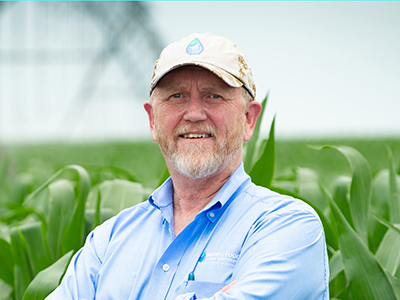As communities around the world navigate the unfolding COVID-19 crisis, many families find themselves with their livelihoods threatened, especially the poor. This is particularly true in the developing world, where many don’t have access to sufficient water even to wash their hands. In this environment, the challenges of food and water insecurity are not on pause. In fact, efforts to address the threat of COVID-19 have significantly disrupted food systems, and made it even more difficult for the world’s poor to access food.
While agriculture systems in the Midwest are proving resilient, in the developing world it is predicted this will lead to a reduction in capacity to produce food, and the financial capacity to purchase food on the market. As a consequence, decision makers are understandably turning to increasing agricultural production as part of the solution, and it is critical that such decisions further prioritize sustainability, especially where water and soil systems are already under stress.
We and our partners continue to develop new ways to collaborate, continuing our efforts on innovative research and outreach activities to develop viable solutions and make meaningful impacts in improving water use, water quality and public health, and agricultural water productivity. From resuming our drone-based field research to validate water use estimate from satellite monitoring, to securing a grant from Wells Fargo IN2 to support entrepreneurial approaches to food security amid the COVID-19 crisis, and the expansion of the Nebraska Water Center’s “Know Your Well” program, we continue to build momentum.
As with other major global water events, such as World Water Week in Stockholm, we have made the difficult decision to postpone the 2020 Water for Food Global Conference to 2021. It is especially disappointing, as the response to our request for session proposals drew more than 60 high-quality submissions from a wide variety of partners, nationally and internationally. We anticipate many of these sessions will form the basis of our in-person conference next year. In the meantime, we are working with several of these partners to develop interactive online sessions in the near future, beginning this week with the Farmer-led Irrigation Development webinar in collaboration with The World Bank, the International Water Management Institute (IWMI) and the Global Water Partnership (GWP).
If you are not already following DWFI through social media, I encourage you to engage with us on Twitter, Facebook, Instagram, YouTube and LinkedIn. To make real and lasting change, we need to openly communicate and collaborate – and your feedback is valued and appreciated.


